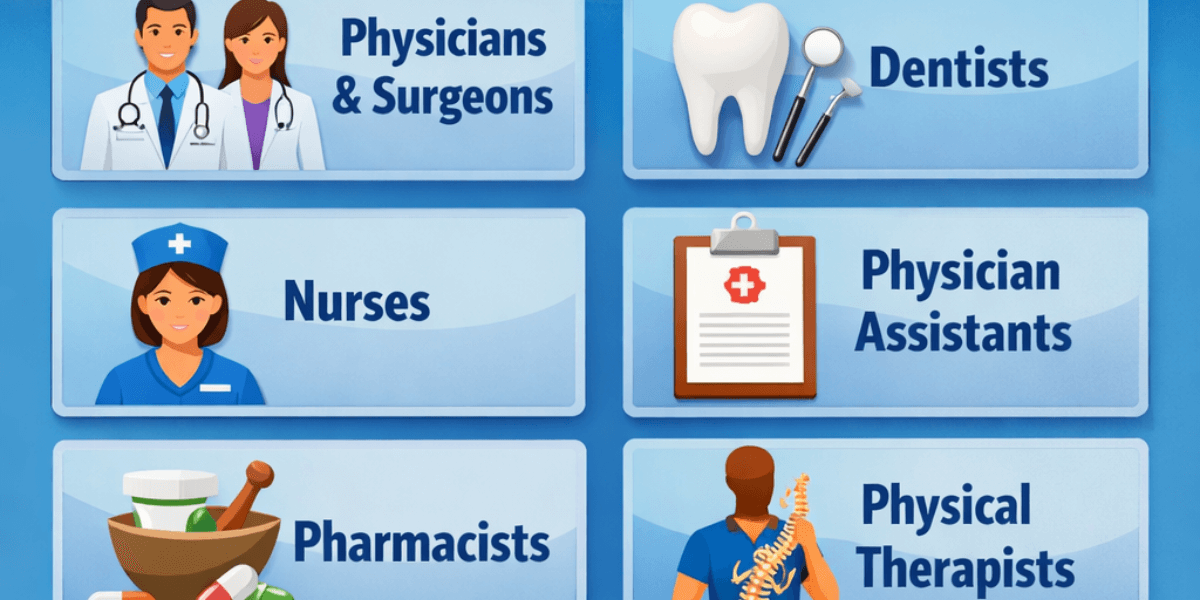The medical field offers stable career paths, but many physicians face a key decision: is it more profitable to own a practice or work as an employee? While employment offers structure and consistency, private practice provides greater independence and the potential for higher earnings.
Profitability varies based on factors like specialty, location, financial management, and operational efficiency.
So, what makes owning a practice both fulfilling and financially rewarding? Here are key strategies to boost profitability and operational success.
Table of Contents
Toggle8 Ways To Make Running A Medical Practice Profitable and Efficient
-
Optimize Your Revenue Cycle Management
One of the first things to look at when trying to increase the profitability of medical practices is the revenue cycle. It’s not just about treating patients; it’s about ensuring you’re paid accurately and on time. Revenue cycle management includes billing, coding, claims processing, and payment collections. Even small errors in this area can lead to revenue leakage.
It is critical to ensure that all claims are coded correctly and submitted on time. Training billing staff or hiring experienced coders can significantly reduce denials and delays. Many practice owners underestimate how much revenue is lost due to administrative errors or payer miscommunication.
-
Leverage Automation and AI
Automation and artificial intelligence are practical tools that are redefining healthcare operations. By automating recurring tasks such as appointment reminders, insurance verification, and patient intake, practices can save time and reduce administrative workload.
This isn’t about replacing staff; it’s about freeing them up for high-value work.
In practices where every minute counts, automation allows physicians and staff to pay more attention to patient care and less to manual processes. If you’re preparing your practice for future growth or considering its value in the market, embracing digital tools also contributes positively to medical practice sales.
-
Streamline Office Workflow and Processes
Efficient office management directly affects patient satisfaction and employee morale, which impact a practice’s success. Disorganized scheduling, unclear communication, or duplicative processes can slow operations and frustrate everyone involved.
Start by assessing the current workflow. Where are the bottlenecks? Is there a delay in patient check-ins? Are lab results communicated effectively? Implementing standard operating procedures for daily tasks can reduce confusion and increase accountability. When used correctly, workflow software tools can centralize tasks, reduce paperwork, and ensure every team member knows their role.
-
Improve Patient Scheduling for Maximum Productivity
Patient scheduling isn’t just about filling time slots; it’s about maximizing the value of every hour. Gaps in scheduling, no-shows, and last-minute cancellations can eat into your revenue and leave your staff underutilized.
To improve scheduling efficiency, analyze patient flow patterns. Which times of the day are most productive? Where are you overbooked or underbooked? Use this data to adjust scheduling templates and minimize downtime. Consider implementing automated reminders via text or email to reduce no-shows. When done right, smart scheduling boosts productivity and revenue and makes better use of your team’s time.
-
Enhance the Patient Experience to Boost Retention
In today’s competitive healthcare market, patient experience can be a deciding factor for success. Patients are more informed, have more options, and are less likely to stick with a practice that doesn’t meet their expectations.
Simple changes, like reducing wait times, offering flexible appointment options, and improving communication, can go a long way. Make it easy for patients to interact with your clinic. Patients who feel heard and respected are more likely to return and refer others.
-
Strengthen Financial Management and Cost Control
If your financial management is weak, you can generate high revenue and still struggle with profitability. It’s not just about earning more; it’s about spending wisely. Many clinic owners overlook hidden costs in their operations, from vendor contracts to utility bills to underused staff resources.
Start with a detailed expense audit. Identify what’s essential and what can be reduced or renegotiated. Outsource financial tasks if needed; having a professional accountant or financial advisor can help you stay ahead of tax obligations, budget forecasting, and long-term planning. Understanding your overhead, return on investment, and cash flow can also make a significant difference if you check your clinic’s real estate valuation.
-
Invest in Staff Training and Development
Investing in their growth enhances service delivery and builds a positive work environment that improves retention. Offer training on everything from new technologies to customer service. Encourage certifications, reward professional development, and create pathways for career growth within the practice.
When staff members feel valued, they perform better and stay longer, reducing hiring costs and disruption. Their improved performance translates into better patient outcomes, smoother operations, and greater profitability.
-
Consider Outsourcing Non-Core Functions
Running a clinic involves more than just patient care. HR, IT, billing, and marketing are all essential, but they can be time-consuming and expensive when handled in-house. Outsourcing non-core tasks can free up resources and help you focus on the services that drive revenue.
Third-party billing services, for example, often have specialized knowledge and tools to manage claims more efficiently than in-house teams. Marketing agencies can drive more effective patient outreach. IT providers can keep your systems secure and compliant without needing a full-time staff member. Outsourcing, when done strategically, reduces overhead while improving service quality.
Final Thoughts
So, is private practice worth it? The answer largely depends on how you run it.
While ownership brings more responsibility, it offers greater control over income, operations, and long-term value. Done right, owning a practice is rewarding and financially sustainable in the long run.
When you consider the profitability of medical practices, it’s clear that success doesn’t happen by accident. From optimizing revenue cycles to investing in staff, every decision plays a role in shaping financial outcomes.
Planning a profitable medical practice acquisition and need help with commercial real estate valuation? Discover how Strategic Medical Brokers can guide you with Expert advice on medical practice sales and smart growth strategies








